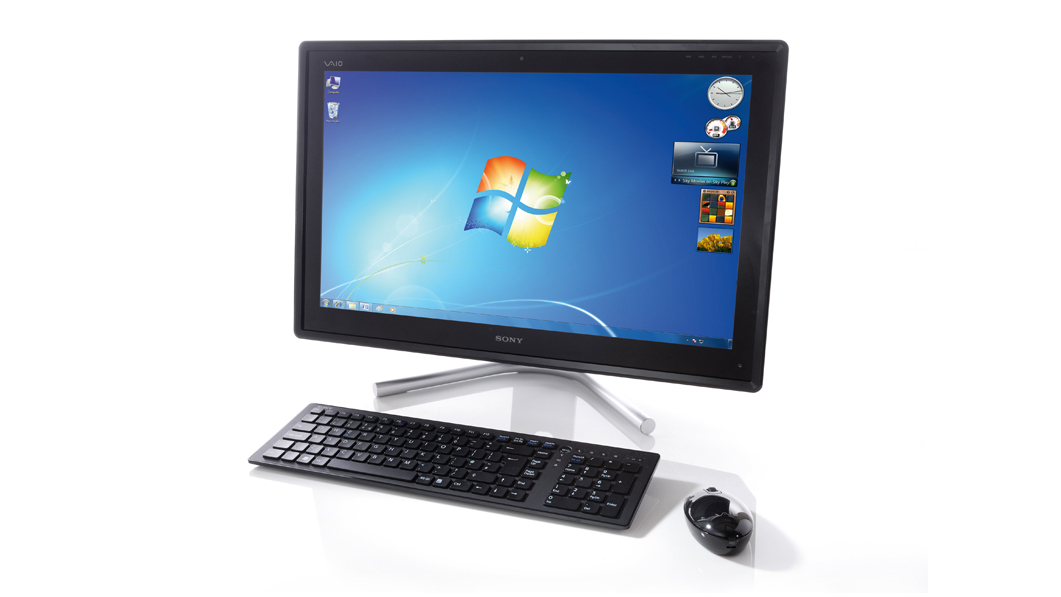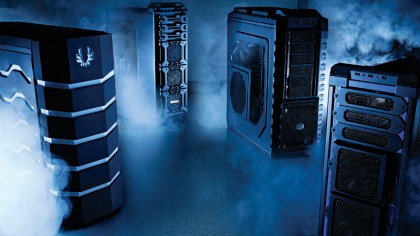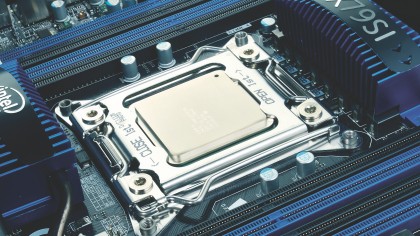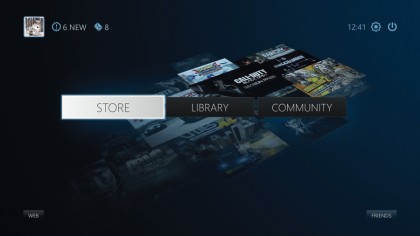How gamers are leading a revival for the desktop PC
Limitations of mobile OS send serious users looking for more

If you believe much of the mainstream media, and the recent figures from IDC, then PCs are a thing of the past. If you understand how these sources are defining the term "PC" then you are certainly less confused by these statistics than we are. As we understand it, a PC is generally a desktop computer, and very likely includes laptop computers.
If you took the phrase "personal computer" literally, though, you could easily include smartphones and tablets in the mix. But it's these devices that we're now assured are going to take over the world and make desktop and laptop computers obsolete.
Sure, if all you do is vegetate on a sofa reading Facebook or Buzzfeed all day, then you probably have no real place or use for a fully-fledged computer.
If, however, you're one of the ever increasing legions of content creators - be it a writer, animator, digital artist or YouTube unboxing genius - then the likelihood is that you would struggle to fulfil your potential within the limitations of mobile operating systems.
PC gaming snobs
"The PC gaming fraternity that wouldn't be seen dead getting their kicks from devices capable of running Candy Crush"
Primarily, though, there's also an ever-increasing PC gaming fraternity that wouldn't be seen dead getting their full-time gaming kicks from the poor man's alternative that is the console, or even worse - devices capable of running Candy Crush.
What the creators and the gamers have in common is that they're not particularly well served by pre-built computers. Yes, when it comes to laptops there's little choice other than to buy a pre-built machine from one of the well-known manufacturers. But when considering a desktop PC, it's more likely that you'll find a custom-built behemoth taking pride of place instead of an off the shelf machine from Dell or the like.
Sign up to the TechRadar Pro newsletter to get all the top news, opinion, features and guidance your business needs to succeed!
An August report from Jon Peddie Research (JPR) suggested that despite overall PC sales being on the decline, PC components are on the up, and that's largely thanks to the gamers.

"PC gamers continue to buy and build with a fervency that could be compared to motorcycle, 4 x 4 and sports car enthusiasts, always looking for more speed, power, utility, and handling," the report says.
It seems that for PC gamers the "that'll do" attitude of those purchasing tablets in their droves just doesn't quite cut it when it comes to desktop computers. These enthusiasts want the latest components and the fastest computers, both for self satisfaction and also to provide bragging rights over other PC gamers.
For many it's a hobby (or an obsession or a passion) that doesn't stop at their latest game of choice running at high settings, and that in itself is the driving force behind the continued expansion of the build-it-yourself market.

"A major component of this situation is that many games are placing increasing demands on the CPU. The result is that swapping out the graphics add-in board is not enough this time around, and gamers are building (and ordering) overclocked PCs from the ground up," JPR says.
Consoles helping PCs
Another major supporter over the coming years that isn't highlighted by JPR is the next generation of games consoles that are due to launch later this year.
This may sound a little backwards, and on the surface you'd think that a new range of games consoles from Microsoft and Sony would likely drive PC sales down even further, but unlike the previous generation of consoles, both the Xbox One and PS4 are based on AMD architecture that is almost identical to their APU units that are proving very popular with lower-budget PC gaming builds.
With this in mind, it's very likely to make things easier for game developers to ensure that PC games are what everything is based on. Over the last few years, the biggest thing harming the PC gaming industry was that a lot of new games were nothing more than half-hearted ports of console versions. This hurt mainstream PC gaming, though it was also probably responsible for the astronomical rise in indie gaming on PCs.

Now that developers will all be working on x86-based platforms, no matter whether they're developing primarily for PC or console, it will put PC gaming back at the forefront of developers' minds. With this renewed focus, developers will want to show off the pinnacle of graphical possibilities - and despite the hugely powerful new console contenders, that means leading on PC.
News of Jason Holtman joining Microsoft has made PC gaming's future feel assured. Having spent years at Valve turning Steam in to the default download choice for PC gamers, Holtman has been poached by Microsoft, where it's reported that he'll be doing all that's possible to ensure Windows continues to thrive as a relevant gaming platform.
So, the PC market isn't dying. It's evolving into a DIY market where customisation, top specification and rivalry between PC gamers is flourishing.